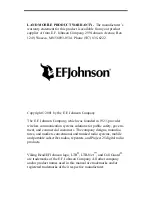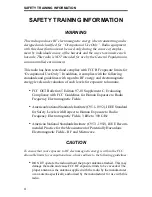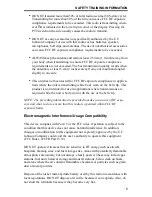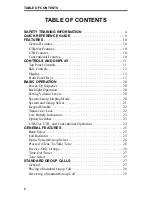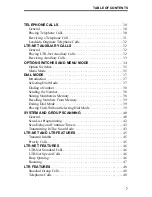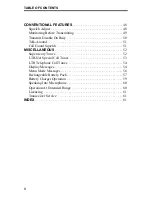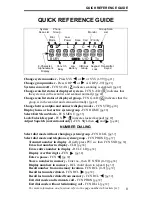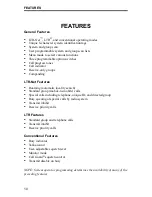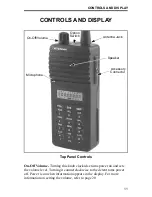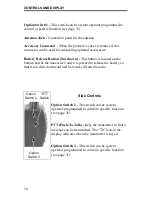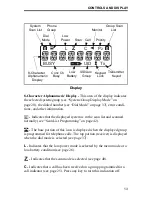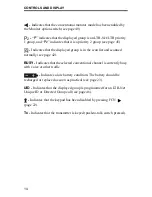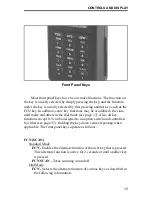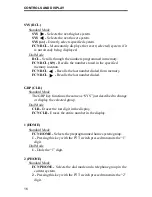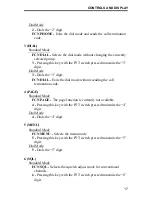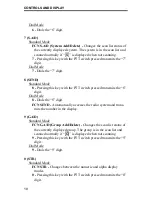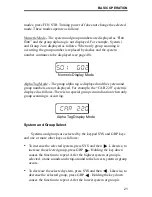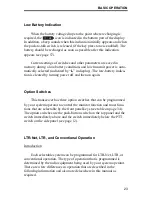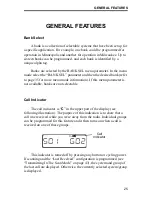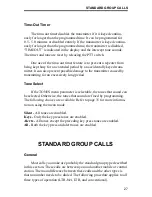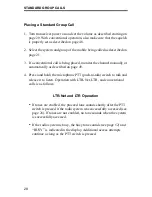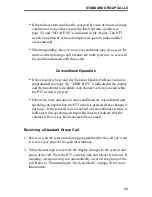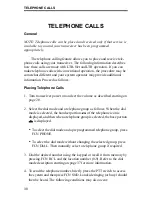
CONTROLS AND DISPLAY
15
Front Panel Keys
Most front panel keys have two or more functions. The function on
the key is usually selected by simply pressing the key, and the function
under the key is usually selected by first pressing another key such as the
FCN key. In addition, some key functions may be available in the stan-
dard mode and others in the dial mode (see page 37). Also, all key
functions except 0-9 can be assigned to an option switch and controlled
by either (see page 35). Holding the key down causes repeating when
applicable. The front panel keys operate as follows:
FCN (SCAN)
Standard Mode
FCN -
Enables the alternate function of the next key that is pressed.
This alternate function is active for 2 seconds or until another key
is pressed.
FCN SCAN -
Turns scanning on and off.
Dial Mode
FCN -
Selects the alternate function of various keys as described in
the following information.


